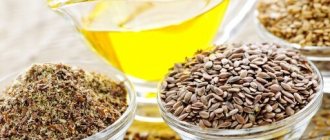What is flaxseed oil?
Flaxseed oil is a concentrated vegetable oil obtained from flax seeds and has been known to people for a surprisingly long time. Flax, which is known scientifically as Linum usitatissimum, has many uses and has been part of various cultures.
Although the plant is believed to be native to the Mediterranean region, Canada, Russia, France and Argentina are the largest producers today. This very versatile plant grows in a variety of climates, having many uses. For thousands of years, flax has been used not only as a key element in the production of linen fabric, but also as a very healthy and easily accessible food source.
Rich in omega-3 fatty acids, flaxseed oil is one of the most common alternatives to traditional vegetable oil. This is partly because it has the most impressive list of scientifically proven health benefits. It can be used in the same way as any other vegetable oil, as its taste is quite pleasant.
Flax product and cottage cheese
There are products that, when mixed, increase the beneficial properties of each other. Such a product for flaxseed oil is cottage cheese. The product of pressing flax seeds contains many polyunsaturated fatty acids, and cottage cheese contains a lot of protein. By binding with each other, proteins become easy to digest. And cottage cheese, in turn, enhances the synthesis of fatty acids that make up the oil. This amazing property was discovered by the famous Johanna Budwig. Cottage cheese mixed with flaxseed oil has healed and strengthened the health of many sick people. In patients, the cancerous tumor receded, hemoglobin increased, and vital energy appeared. To prepare a life-giving dish we will need:
- cottage cheese – 1 glass;
- linseed oil – 3-4 tbsp. spoons;
- freshly ground flax seeds - 2-3 tbsp. spoons;
- water.
All ingredients are mixed using a blender until a thick mass is obtained. This mixture is also called “Badwig muesli”. Use it in the morning or evening. The main thing is to eat freshly prepared cottage cheese with flaxseed oil, and store it for no more than 20 minutes. Cottage cheese with the addition of flax seed products has been recognized as one of the most effective in the fight against cancer.
Nutritional value, composition and calorie content of flaxseed oil
Flaxseed oil contains omega-3 and omega-6 fatty acids, which are important polyunsaturated fatty acids (PUFAs) that the body cannot produce on its own. It's important to get these PUFAs in the right ratio because omega-3 fatty acids help reduce inflammation, while many omega-6 fatty acids promote inflammation.
A healthy diet should contain approximately 2-4 times less omega-6 fatty acids than omega-3 fatty acids. However, the typical modern diet typically contains 14 to 25 times more omega-6 fatty acids than omega-3 fatty acids. Many researchers believe that this is a significant factor in the increasing rate of inflammatory diseases.
Flaxseed oil contains alpha-linolenic acid ALA, which is converted into eicosapentaenoic acid (EPA) and docosahexaenoic acid (DHA), which are two other types of omega-3 fatty acids important for health.
100 grams of flaxseed oil contains (% of recommended daily intake) (1):
- Calorie content: 884 kcal (44%).
- Carbohydrates: 0 g (0%).
- Fat: 100 g (154%).
- Protein: 0 g (0%).
- Vitamin E: 17.5 mg (87%).
- Omega-3 fatty acids: 53304 mg.
- Omega-6 fatty acids: 12701 mg.
Flaxseed oil for weight loss and more
Today, many people no longer remember this oil, although it used to be the pride of the agricultural industry.
So, flaxseed oil - what are its benefits? As already mentioned in the article about different types of oils, it contains a large amount of polyunsaturated fatty acids. Flax seed oil is an excellent external source of valuable polyunsaturated fatty acids Omega-3 and Omega-6, which is the essence of the benefits of this oil. These chemical compounds are good because they reduce cholesterol levels in our blood, increase the elasticity of blood vessels and prevent the development of myocardial infarction, atherosclerosis, hypertension, coronary heart disease, and reduce the risk of stroke and blood clots.
In addition to Omega 3 and 6, it contains almost the entire B vitamin complex, vitamin E, which is a powerful antioxidant and growth factor. We can say that this is a storehouse of health and must be taken. It contains large quantities of substances necessary for the human body, such as protein, zinc, lecithin, potassium, magnesium, vitamins A, B, E and F. The oil not only helps you lose weight, but also improves the structure of hair, nails and skin.
Considering the benefits of flaxseed oil for hair, here are several recipes for a hair mask:
1. For split ends.
Mix 150 ml of flaxseed oil and 100 g of chopped fresh burdock root. Leave the mixture to brew for 24 hours in a warm place. Next, boil in a water bath for 15-20 minutes, stirring. Apply the strained mixture of flaxseed oil and burdock root to your hair for 1-1.5 hours and rinse.
2. For brittle hair.
Prepare a mask in the proportion of 1 chicken egg yolk to 1 tbsp. a spoonful of warm flaxseed oil. Shake and apply to hair for 15-20 minutes. Rinse off with warm water.
3. For dry hair.
Mix 2 tablespoons of flaxseed oil with 1 tablespoon of lemon juice. Next, apply the resulting mask to your hair for 15-20 minutes and rinse with running water.
By making hair masks 2-4 times a month, in just a few months you will see results.
Speaking about the benefits of oil for the skin, I would like to note that flaxseed oil softens and moisturizes the skin, restoring its elasticity and reducing wrinkles. Flaxseed oil is indicated for use for dry skin:
1. Mask for aging skin
For aging skin, mix a tablespoon of crushed flax seeds with the same amount of milk powder and honey and add two tablespoons of water. Mix well and add one ampoule of vitamins A and C water in small portions.
2. Mask for dry skin
For dry skin with signs of flaking, this mask is ideal: grind an egg yolk with half a teaspoon of honey, add three to four drops of flaxseed oil and ten drops of lemon juice. Beat the mixture until foam forms and add a teaspoon of oatmeal ground in a coffee grinder.
3. Mask for oily skin
For oily skin and the T-zone of combination skin, the following mask is effective: mix a tablespoon of wheat flour with three tablespoons of kefir, a teaspoon of flaxseed oil, a small pinch of salt and two teaspoons of lemon juice. Mix the ingredients thoroughly. If the mass is too thick, it must be diluted with additional kefir. Apply the mask for fifteen minutes, then rinse it off with cool water. It perfectly eliminates oily shine, tightens enlarged pores, and is an excellent tonic.
Considering 3 oils (soybean, flaxseed, fish oil) from the point of view of the presence of Omega-3, polyunsaturated fatty acids so necessary for our body, we can say that:
1st place is occupied by linseed oil;
2nd place - fish oil;
3rd place - soybean oil.
The most important components of flaxseed oil are fatty acids:
— alpha-linolenic acid — 60% (Omega-3);
— linoleic acid — 20% (Omega-6);
— oleic acid — 10% (Omega-9);
— other saturated fatty acids — 10%.
It is worth noting that polyunsaturated fatty acids are a structural unit of cell membranes and especially cells and fibers of nervous tissue. That is, flaxseed oil is very useful and irreplaceable for both the heart and nerves. Those who regularly take flaxseed oil note increased resistance to stress, good spirits and mood. To do this, you need to take 1 tablespoon of oil daily on an empty stomach. Can be diluted with kefir or taken with a crust of black bread. Or you can simply add flaxseed oil to the salad.
Next, we will show you how to choose the right linseed oil.
The benefits of flaxseed oil for the human body
Flaxseed oil is made from the incredibly nutritious and health-promoting flax seeds. Like seeds, flaxseed oil is rich in omega-3 fatty acids, adequate intake of which has been linked to a healthier brain and heart, improved mood, reduced inflammation in the body, and improved health and appearance of skin and hair. Thanks to its nutty, slightly sweet taste, consuming one tablespoon of flaxseed oil daily does not cause any unpleasant feelings or disgust. This is great news considering all the benefits of flaxseed oil for your health.
Flaxseed oil contains 50-60% omega-3 fatty acids in the form of alpha-linolenic acid (ALA). Flaxseed oil is even more beneficial than fish oil, as it has more pronounced anti-inflammatory and disease-preventing properties thanks to the ALA in its composition. This is great news, especially for people who don't eat meat and people concerned about the possible presence of mercury in some types of fish and, by extension, in fish oil.
Omega-3 fatty acids play an important role in all kinds of processes in the body, including inflammation, heart function and brain function. A lack of omega-3 fatty acids is associated with lower intelligence, depression, cardiovascular disease, arthritis, cancer and many other health problems.
How is flaxseed oil beneficial for the human body? The benefits of flaxseed oil are varied, but here are some of the most impressive:
Helps you lose weight
Because flaxseed oil lubricates the inside of the colon and acts as a natural laxative, it is excellent for moving food and stool through the digestive system. By helping the body remove waste from the intestines faster, it helps your body cleanse itself and get rid of excess weight.
In fact, a 2015 study published in the scientific journal Nutrition Journal found that flaxseed oil included in a weight loss diet not only helped subjects lose weight, but also reduced markers of inflammation (2).
Relieves constipation and diarrhea
With constipation, there is a very slow movement of food waste through the digestive tract. This is usually accompanied by various symptoms such as bloating, gas, back pain or fatigue. One of the main folk or traditional remedies for constipation is flaxseed oil. Acting as a lubricant for the colon, flaxseed oil provides easy and natural relief from constipation.
This oil also benefits people suffering from diarrhea. A 2015 study published in the Journal of Ethnopharmacology found that flaxseed oil has the ability to relieve constipation and prevent diarrhea. This shows that eating this product benefits the digestive system in a variety of ways (3).
Helps fight cancer
Flaxseed oil is used in integrative cancer therapy and various alternative cancer treatments such as the Budwig Protocol. Research even suggests that flaxseed oil's healing properties may include helping prevent the growth of breast tumors.
In one 2015 study, researchers found that ALA found in flaxseed oil reduced the growth of breast cancer cell lines through altering signaling pathways (4).
Another study published in the scientific journal Nutrition and Cancer supports the use of flaxseed oil as an inexpensive adjunctive therapy for various types of breast cancer. A study found that ALA in flaxseed oil reduces cancer cell growth and induces apoptosis, which is programmed cell death of cancer cells (5).
Eliminates cellulite
Collagen production decreases as we age, but consuming flaxseed oil helps increase collagen production. Structural changes in skin tissue, including decreased collagen levels, make cellulite more visible because the skin becomes thinner and less able to hide the unevenness created by superficial fat and connective tissue just below its surface. By adding flaxseed oil to your diet, you can really help yourself in the fight against the appearance of cellulite.
Reduces eczema
Eczema is a common skin condition that causes symptoms such as dryness, redness and itching, which can cause the skin to blister or crack. This condition is usually caused by an allergic reaction to foods, chemicals, or other substances such as perfumes or soaps.
In addition to avoiding the use of harmful skin care products, you can also significantly improve your eczema by including flaxseed oil in your diet. The essential fatty acids present in this oil help improve the elasticity and texture of the skin. This makes flaxseed oil one of the best foods for improving overall skin health and solving pesky skin problems like eczema (6).
Improves heart health
There is scientific evidence that eating foods high in alpha-linolenic acid, such as flaxseed oil, may help prevent and treat cardiovascular disease.
One study shows that people whose diets contain high amounts of ALA are less likely to have a fatal heart attack. Another study found that women who consumed the highest levels of ALA (1.5 grams per day) had a 46% lower risk of sudden cardiac death, compared with those who ate the least amount of ALA (about 0.5 grams per day). .
Other studies show that people who eat more foods with alpha-linolenic acid have a reduced risk of developing fatal heart disease.
Treats Sjögren's syndrome
Sjögren's syndrome is an autoimmune systemic disorder of connective tissue, and the two most common symptoms are dry eyes and dry mouth.
Research to date has identified numerous potential links between nutrition and tear film health. One such study assessed whether taking flaxseed oil orally could help patients with Sjögren's syndrome. Results showed that taking flaxseed oil capsules (one or two grams per day) reduced superficial ocular inflammation and alleviated symptoms of keratoconjunctivitis sicca (dry eye syndrome) in patients with Sjögren's syndrome (7).
Controls cholesterol levels
Of all the vegetable oils on the market, flaxseed oil has the highest content of omega-3 fatty acids, which is very important. Although both forms of cholesterol are essential for the body, omega-3 is considered the “good” HDL cholesterol.
Omega-3 fatty acid helps clear your body of excess “bad” cholesterol, called LDL, and helps balance cholesterol levels in your body (8). This means you won't develop plaque on the walls of your arteries and blood vessels (cholesterol plaque), which will help lower your blood pressure, reduce your risk of atherosclerosis, and effectively prevent heart attacks and strokes.
Supports hormonal balance
Once women go through menopause, their bodies change a lot, especially in terms of the balance of hormones such as estrogen (9). The lignans in flaxseed oil, namely secoisolariciresinol, mataeresinol and pinoresinol, have a profound effect on hormonal balance, thereby helping many post-menopausal women function better.
Beneficial features
What are the benefits of flaxseed oil:
- Significantly reduces the risk of heart attacks and strokes due to its anti-sclerotic properties: flax seed oil increases the concentration of beneficial lipoproteins in the blood and reduces the amount of harmful ones - the same ones that form plaques on the walls of blood vessels and contribute to the development of atherosclerosis.
- Fatty acids improve memory abilities and concentration by protecting neurons and communication between them. With aging, these properties of the nervous system decline, hence Alzheimer's disease and other age-related illnesses. In addition, psychiatrists and neurologists recommend consuming flaxseed oil regularly in small quantities to:
- Avoid depression.
- Increase stress resistance.
- Prevent the development of psychoneurological pathologies, for example, childhood attention deficit disorder.
Older people who introduce a little flax juice into their diet maintain mental clarity, good memory and attention longer.
- Prevents the development of hormone-dependent neoplasms (breast cancer in women, prostate adenoma in men). Treatment of female and male infertility will be more effective if you consume 1-2 tablespoons of unrefined flax extract per day along with various dishes.
- Helps reduce blood sugar by stimulating the production of insulin in the pancreas. The use of flaxseed oil for medicinal purposes in diabetes mellitus types I and II will reduce the risk of developing polyneuropathy, one of the most serious diabetic complications.
- “Starts” the work of the intestines, helps normalize gastrointestinal motility. Gastroenterologists advise taking flaxseed oil for constipation - this extract changes the consistency of feces and facilitates their removal from the body. And the antioxidants contained in the product protect us from the harmful effects of nitrites and nitrates, which vegetables and fruits are rich in.
- Accelerates biochemical reactions in the body, which has a positive effect on weight normalization (with strictly dosed use - do not forget about the calorie content!).
- It has a beneficial effect on tissue regeneration and has an anti-inflammatory effect. Thanks to this property, linseed oil has found wide application in the manufacture of ointments, liniments, and other external medicines. The regenerative and anti-inflammatory effect has led to the use of flaxseed oil in cosmetology for the production of moisturizers and other creams.
Nutritionists do not give a definite answer to the question of which oil is healthier, olive or flaxseed, but flax extract is richer in composition. Although there is almost 10 times more vitamin E in olive oil, that’s why they love to use it for nails and hair.
What is healthier – flaxseed oil or fish oil?
Flaxseed oil and fish oil contain omega-3 fatty acids. There are three types of omega-3 fatty acids involved in human physiology - ALA, EPA and DHA:
- Eicosapentaenoic acid (EPA) : Essential for physical and mental health. This type of omega-3 is found primarily in fish and fish oil.
- Docosahexaenoic acid (DHA) : Particularly important for your body and required for various functions related to your brain, blood vessels, and immune system. It is found in shellfish, fish and fish oil.
- Alpha-linolenic acid (ALA) : This is the only omega-3 fatty acid found in plants such as flax seeds, canola seeds, soybeans, hemp seeds and walnuts. When you consume ALA, your body converts it into EPA and then eventually into DHA.
Flaxseed oil is rich in ALA but lacks EPA and DHA. The body can absorb ALA and convert this fatty acid into DHA and EPA, two omega-3 fatty acids found in fish oil. It does this through the action of enzymes called elongase and desaturase. The conversion rate depends on your diet and the health of your digestive tract.
Conversion of ALA to EPA and DHA is dependent on adequate levels of other nutrients such as vitamins B6 and B7 (biotin), copper, calcium, magnesium, zinc and iron. Many of them come from the modern human diet in insufficient quantities, especially among vegetarians.
Flaxseed oil contains 50-60% omega-3 fatty acids in the form of ALA. Fish oil naturally contains both EPA and DHA. EPA and DHA are the most beneficial omega-3 fats, but we don't tend to get enough of them from food, so our bodies also make them from the more common ALA, which is one of the most important components of flaxseed oil.
How to use flax oil correctly
Wanting to lose weight, sane people ask the question “How to take flaxseed oil for weight loss?” In order for weight loss to be effective and beneficial, this product must be drunk correctly, since excess is harmful to the body. Flaxseed oil for weight loss is taken for 3 months in two stages, then you need to drink it based on the daily dose. You need to use flaxseed oil for weight loss in two stages. At the first stage, which lasts 1 week, you need to consume 1 teaspoon of the product in the morning on an empty stomach or before bed. You can start breakfast in 20 minutes. In order for the flax seed product to be beneficial and not harmful, it must be consumed correctly.
- Drink only 1 teaspoon, no more.
- The product should be at room temperature.
- The same temperature applies to drinking water.
Flax seed oil can not only be drunk, but also added to food that is not cooked. If you add this product to hot dishes, the beneficial properties of the oil will disappear. The second stage is to gradually increase the dose to 1 tablespoon in the morning on an empty stomach and 1 tablespoon at night before bed. The second stage can last until you achieve the desired result. While maintaining weight, gradually return to the daily norm of 1-2 teaspoons. Here's how to take flaxseed oil for weight loss, which was both beneficial and effective.
How to choose, store and use flaxseed oil
It is best to buy cold-pressed flaxseed oil and organic flaxseed oil from a reputable brand. Whatever brand you use, flaxseed oil should be stored in an opaque bottle (usually black) to reduce oxidation. Natural oils, in addition to ALA, provide the human body with valuable lignans. You can also buy flaxseed oil in capsule form if you want to avoid the taste, but nutritionists recommend buying the oil in its pure form.
One of the most convenient benefits of flaxseed oil is its versatility. It can be used instead of other oils to add to salads. It also adds flavor and nutritional value to various smoothies and protein shakes.
Like ground flax seeds, flaxseed oil is a great addition to yogurt or oatmeal. Mixing flaxseed oil with yogurt or cottage cheese helps emulsify the oil, improving its digestion and absorption by the body. The combination of organic flaxseed oil and organic cottage cheese is actually part of Joanna Budwig's anti-cancer diet. Flaxseed oil can be used in place of other fats, added to rice, potatoes or on toast.
Flaxseed oil should always be stored in the refrigerator to maintain freshness. To prevent oxidation and rancidity, it is important that the bottle is tightly sealed. For maximum freshness it should be consumed within 6-8 weeks of opening. If you don't plan to consume flaxseed daily or are prone to forgetfulness, try simply not buying a bottle of flaxseed oil that is too large.
Nutrition experts do not recommend using flaxseed oil in the cooking process because it oxidizes too easily. However, it's okay to add it to foods after they've warmed up (10).
What to do to make oil help you lose weight
When choosing flaxseed oil as a product to accelerate your weight loss, do not forget that the body can get used to constant use. And so that the weight loss process does not drag on, do not neglect:
- Exercise. This way, you will lose weight much more effectively.
- Drinking water. Drink at least 2-3 liters of clean water daily.
- Refusal to eat after drinking flaxseed oil.
- Proper and balanced nutrition.
Regular consumption of this vegetable oil normalizes digestion: liver function improves, heartburn and constipation stop, the body gets rid of parasites
How to take flaxseed oil
Before taking or using flaxseed oil for medicinal purposes, you should talk to your doctor about it, especially if you are taking certain types of medications (read about flaxseed oil interactions with medications below). Here are some recommendations on how to take flaxseed oil:
- Follow the manufacturer's instructions . If you decide to take flaxseed oil in capsule form, you should follow the instructions for taking the individual supplement as they may vary. Taking 1 tablespoon of flaxseed oil up to two times daily is the usual dosage. Flaxseed oil taken in excess can cause oily skin, acne, and even oily stools.
- Combine flaxseed oil with juice, water or tea . If you don't like the taste of flaxseed oil, mix it with water, green tea or fruit juice - since it's an oil, it won't mix very well, but if taste is an issue, then mixing it will help. To get rid of any aftertaste, you may find it helpful to take it with food, or after taking it you can simply have a small snack.
- Consider taking flaxseed oil in capsule form . Flaxseed oil is also available in capsule form. Again, follow the manufacturer's instructions regarding dosages. They should be taken with a full glass of water (11).
- Add flaxseed oil to food after it has already been cooked . Flaxseed oil should not be heated. Heating oil destroys most of its nutrients (12). If you add flaxseed oil to food, make sure you add it after cooking. Drizzle flaxseed oil on top of your food rather than using it to cook it. (13)
How to take seeds for weight loss?
Flaxseed brings great benefits to the human body. But the main useful property of this product is its ability to speed up the weight loss process.
The seed contains a lot of fiber. When it enters the body, it swells and cleanses it of toxins and waste. The beneficial components of the product speed up metabolism. But for flax seed to help with weight loss, it should be brewed and taken correctly.
How to brew seeds correctly:
- Pour two tablespoons of seeds into 100 milliliters of boiling water. Close the container and let it simmer in a water bath for 2-3 hours. Drink 100 milliliters half an hour before meals.
- One tablespoon of seeds is poured into 250 milliliters of boiling water. Infuse the infusion in a tightly closed thermos for at least 12 hours.
Important! For a faster weight loss effect, use flax seeds with kefir. This kefir-flaxseed diet helps get rid of parasites and toxins, improves well-being, reduces weight and tones the body.
The diet is designed for three weeks:
- First week. In the first week, once before meals at lunch, drink 100 milliliters of kefir with a teaspoon of meal (grains ground into powder). Kefir is selected 1%.
- Second week. For 100 milliliters of kefir, take 2 teaspoons of meal. The drink is taken 3 times a day.
- Third week. In the third week, 100 milliliters of kefir is mixed with three teaspoons of meal.
If desired, kefir can be replaced with plain yogurt.
Completing the full course of the kefir diet guarantees weight loss from 2 to 4 kilograms.
It is worth remembering that the product cannot be used after the expiration date.
Best before date:
- Seeds - 6-12 months.
- Meal - 6-16 weeks.
The product is stored in glass containers in a dark place.
Harm of flaxseed oil to the human body
Despite its many benefits, flaxseed oil can cause some side effects and interact with medications. But why is flaxseed oil harmful to the human body?
Consuming flaxseed oil appears to be well tolerated by most people, but may cause side effects in some cases. Large doses of flaxseed oil (two tablespoons (30 grams) or more) per day can cause loose stools and diarrhea.
If you are prescribed any of the following medications, you should not take flaxseed oil or other omega-3 fatty acid supplements without first checking with your doctor:
- Blood thinners (anticoagulants) : Omega-3 fatty acids may increase the effects of blood thinners.
- Blood sugar-lowering medications : Flaxseed oil and omega-3 fatty acid supplements may increase fasting blood sugar, which may increase your need for diabetes medications.
- Cyclosporine : Because flaxseed oil contains omega-3 fatty acids, consuming it during cyclosporine therapy may reduce the toxic side effects associated with this drug in transplant patients, such as high blood pressure and kidney damage, but may also cause other side effects effects.
On the positive side, some possible good interactions with flaxseed oil have been observed:
- Etretinate and topical steroids : Consuming plenty of omega-3 fatty acids (particularly EPA) during drug therapy with etretinate and topical corticosteroids may improve psoriasis symptoms.
- Cholesterol-lowering medications : Increasing the amount of omega-3 fatty acids in your diet may help a group of cholesterol-lowering drugs called statins work more effectively, although statin use causes its own negative reactions in the body.
- Nonsteroidal anti-inflammatory drugs (NSAIDs) : In an animal study, treatment with omega-3 fatty acids reduced the risk of ulcers from NSAIDs, including ibuprofen (Motrin or Advil) and naproxen (Aleve or Narosyn).
If you have macular degeneration or prostate cancer, some studies have shown that diets rich in ALA may increase your risk of both of these problems. More research is needed, but fish oil is a safer choice if you have one of these problems.
Pregnant women should also avoid consuming flaxseed oil as it may increase the risk of premature birth. Consult your doctor before consuming flaxseed oil if you are currently breastfeeding.
Taking flaxseed oil and fish oil at the same time can cause your blood to become too thin. Check with your doctor before taking both of these products at the same time. If you have any other health problems or are currently taking any other medications, including supplements, talk to your doctor before adding flaxseed oil to your diet.
Contraindications for use
When taking any product, there is a downside. So, people with:
- Biliary tract problems;
- For diseases of the pancreas;
- For liver diseases;
- Flaxseed oil aggravates the course of hepatitis and pancreatitis.
Use this product with caution if you have hypertension. In the presence of cholecystitis, it is better to take the flax seed squeeze product with food. You should also stop taking it if you take combined oral contraceptives or sedatives. When starting a weight loss program using this product, be sure to consult your doctor. If he gives the go-ahead, still listen to your feelings. If there is obvious discomfort, it is better to choose another method of weight loss. The benefits of flaxseed oil for weight loss are obvious. This product gradually adjusts the body to losing weight without unnecessary stress, while the health of the person losing weight only improves. Not every diet has these benefits. Flaxseed can rightfully be considered a useful product in the fight against excess weight.










